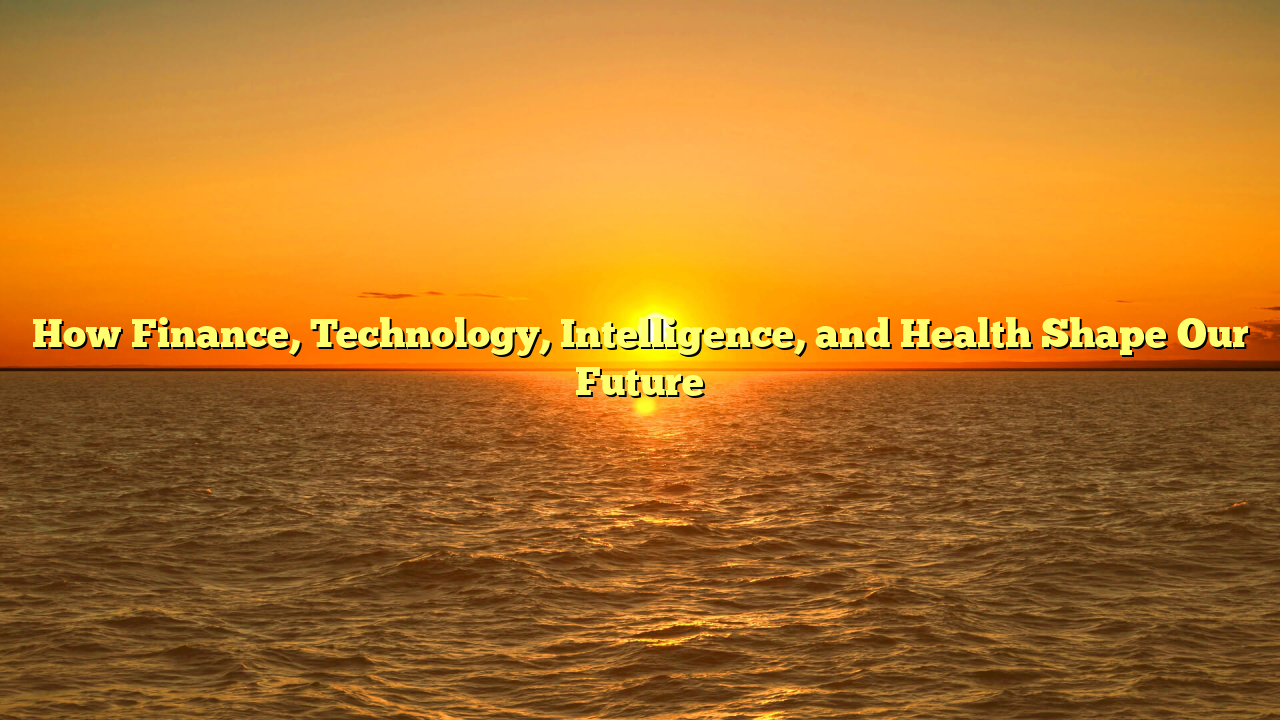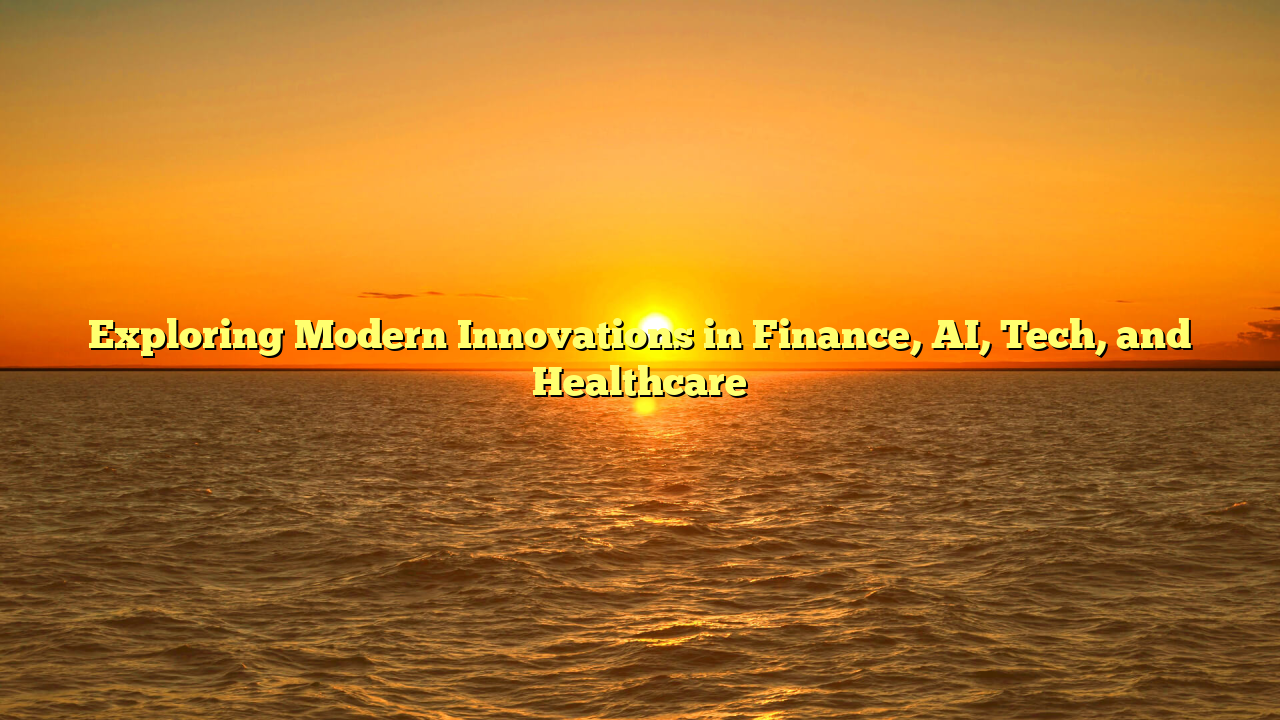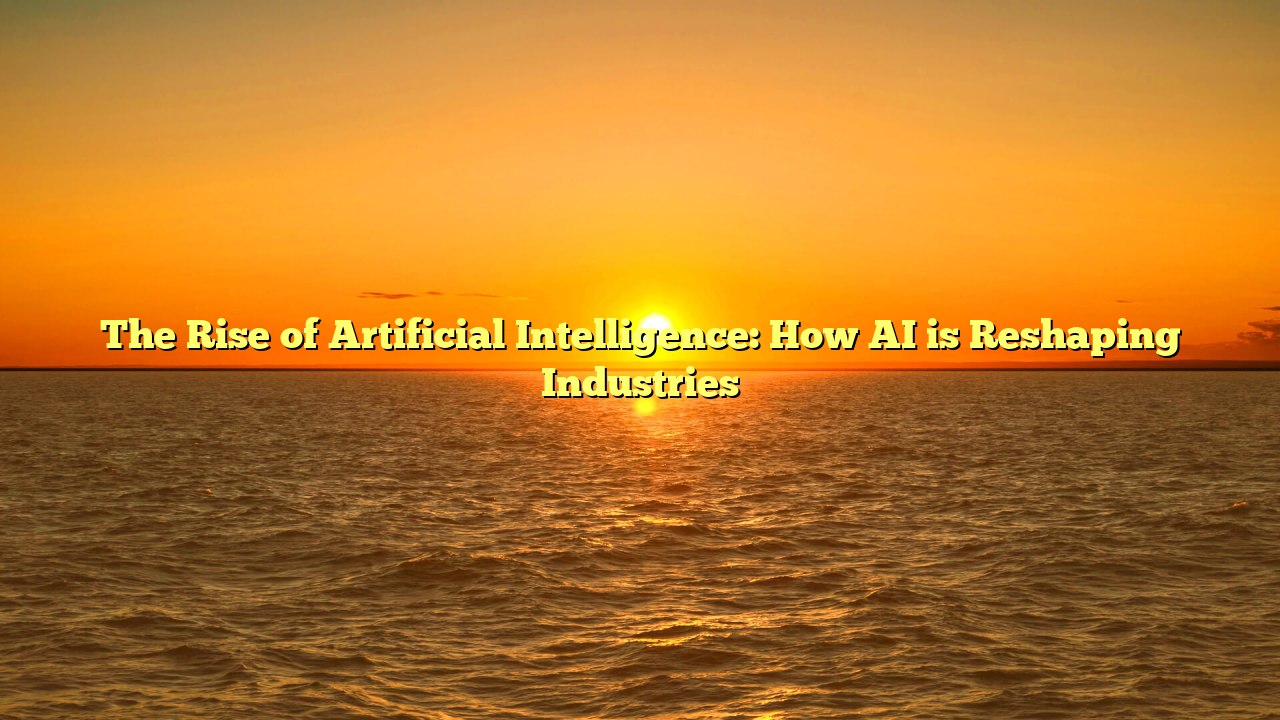In recent years, the world has seen dramatic advancements in financial systems, technological innovations, artificial intelligence, and healthcare. These sectors have evolved rapidly, and their integration has become more pronounced, creating opportunities and challenges that shape our modern world. The interplay between finance, digital transformation, AI advancements, and wellness innovations is undeniable, and understanding their connection is key to navigating the future.
The Ever-Evolving World of Finance
The finance industry has undergone significant transformations over the past few decades. From the advent of online banking to the rise of cryptocurrencies, these changes have reshaped how we manage money, invest, and conduct business. Banks are increasingly integrating advanced tools such as artificial intelligence (AI) and machine learning to enhance decision-making, streamline operations, and offer personalized services.
The growth of cryptocurrency markets has introduced new opportunities for investment, while also raising concerns over security, regulation, and volatility. At the same time, education has become more important than ever, with individuals seeking ways to better manage their finances in a digital-first world.
As financial technology (FinTech) continues to evolve, we are witnessing the development of crowdfunding, automated investment services, and mobile payment systems, all of which aim to democratize access to financial services and increase efficiency.
How Technology is Revolutionizing Every Aspect of Life
Technology is the backbone of our modern world, driving innovations that influence almost every aspect of our lives. The rapid development of connected devices, artificial intelligence (AI), and big data has revolutionized industries from medicine to autonomous vehicles and cryptocurrencies.
In the financial sector, technology has enabled the rise of digital currencies, faster and more secure payment systems, and algorithmic trading. Meanwhile, AI has been instrumental in areas such as fraud detection, predictive analytics, and targeted marketing.
On the healthcare front, technologies like remote healthcare, wearable devices, and surgical robots are changing the way patients receive care. slot demo are making healthcare more accessible, cost-effective, and personalized. With the integration of high-speed internet, healthcare professionals can now share patient data in real-time, enabling more efficient diagnosis and treatment.
Artificial Intelligence and Its Impact on Human Intelligence
Artificial intelligence (AI) has emerged as one of the most transformative technologies of the 21st century. It has found applications across numerous industries, from finance to diagnostic tools and personalized learning. In the financial world, AI helps analyze vast amounts of data to predict market trends, optimize trading strategies, and detect fraud. Similarly, in healthcare, AI-driven systems are improving diagnosis accuracy, personalizing treatment plans, and assisting in drug discovery.
AI is also playing a pivotal role in enhancing human intelligence. The development of voice recognition systems and predictive models has led to advancements in virtual assistants, enabling people to interact with technology more intuitively. These systems can learn from vast datasets, improving over time and offering more accurate responses to user needs.
However, the rise of AI also brings ethical concerns, including the potential for job displacement, bias in algorithmic decision-making, and privacy issues. As AI continues to evolve, it is crucial to strike a balance between innovation and responsible use.
4. The Intersection of Health and Technology: Innovations in Healthcare
The intersection of health and technology has been one of the most exciting areas of development in recent years. Innovations in telehealth, gene editing, and wearable devices have made it possible for individuals to monitor their health in real-time and for healthcare professionals to offer more personalized care.
Telemedicine has become increasingly popular, especially in the wake of the COVID-19 pandemic. Patients can now receive medical advice without leaving their homes, reducing the strain on healthcare facilities and making medical care more accessible to remote or underserved populations.
Additionally, wearable devices, such as fitness trackers and smartwatches, allow individuals to track their health metrics, including heart rate, sleep patterns, and physical activity. This data is valuable not only for individuals seeking to maintain a healthy lifestyle but also for researchers looking to gain insights into public health trends.
Another area where technology is impacting healthcare is in the field of biotechnology. Advances in gene editing tools like gene therapy hold the potential to cure genetic diseases, while breakthroughs in regenerative medicine could offer new treatments for conditions that were previously considered untreatable.
The Convergence of Finance, Technology, Intelligence, and Health
As we look to the future, it is clear that the convergence of finance, technology, intelligence, and health will continue to shape our world in profound ways. The integration of these fields will lead to new opportunities for job creation, improved health outcomes, and technological advancements that benefit society as a whole.
In finance, we can expect continued growth in the use of digital currencies and blockchain technology, which could lead to more secure and efficient financial systems. The expansion of FinTech will also provide greater access to financial services for underserved populations around the world.
In technology, the advent of AI and machine learning will continue to transform industries, with applications in medicine, autonomous vehicles, and education. These technologies will enhance decision-making, improve efficiency, and create new opportunities for innovation.
On the health front, we can expect continued advancements in remote healthcare, genomics, and personalized medicine. These innovations will improve patient outcomes, reduce healthcare costs, and make healthcare more accessible to people around the globe.
The future will also see greater collaboration between these fields. For example, AI-driven health technologies will integrate with financial systems to create more personalized and affordable healthcare options. Likewise, advancements in blockchain technology could help secure medical data and improve healthcare delivery systems.
Navigating the Future of Finance, Technology, Intelligence, and Health
In conclusion, the intersection of finance, technology, intelligence, and health presents both exciting opportunities and complex challenges. As these sectors continue to evolve and intersect, it is essential for individuals, businesses, and governments to stay informed and adapt to the changes. Embracing innovation while addressing ethical concerns will ensure that these fields contribute positively to society, paving the way for a more interconnected and prosperous future.
How Finance, Technology, Intelligence, and Health Shape Our Future



